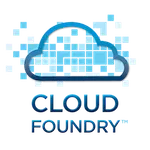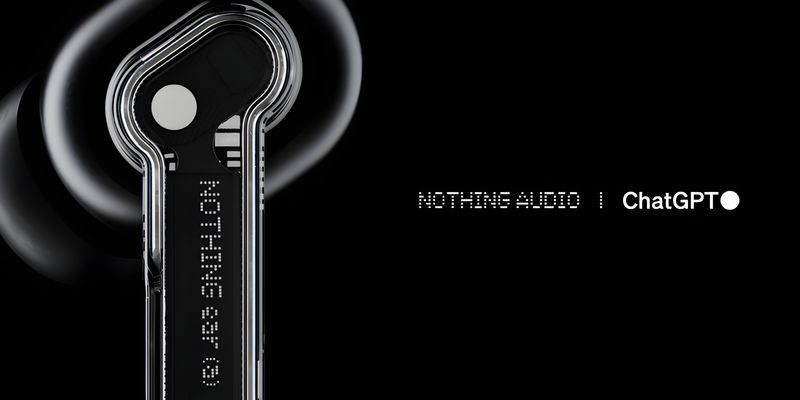CloudStory.in Exclusive – An Interview with Mark Lucovsky, VP of Engineering, Cloud Foundry at VMware!
Monday September 03, 2012 , 12 min Read
Cloud Foundry is a disruptive technology in the Cloud Computing domain. It attempts to democratize PaaS by making it more affordable and accessible to both the enterprises and the service providers. I have been following Cloud Foundry very closely both as a developer and as an industry analyst.
It fascinates me for 2 reasons –
- The architecture, design and the engineering brilliance
- The business opportunities that it brings to the Cloud ecosystem

It’s interesting to see Mark talk about Hailstorm (.NET My Services) and the evolution of .NET from the early 2000s. I pretty much started my career back then and my first job was at Microsoft evangelizing some of the products that Mark built to the developer community in India. I vividly remember playing those concept videos that Mark mentioned in this interview to tens of thousands of developers to excite them and to ultimately convince them to develop applications and services on .NET. Fast forward to 2012, Mark has the same passion for platforms and developers and that is clearly evident in the way Cloud Foundry evolving!

Janakiram MSV :From DEC to Microsoft to Google and now VMware - it’s been a pretty interesting journey for you! During which phase of your career, did you see the Cloud coming?
Mark Lucovsky: Wow! What is the Cloud? Seriously, we used to call it the web, or whatever. But the general vision of a broader collection of servers, computing on your behalf, and delivering value to you wherever you are, on any device, on your terms, and at any time is something I first started to get involved in heavily in ~2000. Prior to that I worked almost exclusively on the hard core internals of operating systems.
In early 2000, late 1999 Microsoft held an event called Forum 2000 where we put together a scripted video showcasing a bunch of scenarios that could be enabled by a next generation set of services and applications platforms. I was asked to look deeply into the scenarios and propose the underlying API architecture and system that could enable these scenarios. The system we invented had a controversial code name of Hailstorm, later renamed .NET My Services. If you look closely at the architecture you will find a document store similar to what we see now in Mongo DB, a data syndication model similar to RSS/Atom Feeds, and a programming model based on XML Web Services.
Today, Cloud seems to be mostly associated with low level IaaS/PaaS style infrastructure, but the real power of “Cloud” is much broader.
Janakiram: Building an OS vs building PaaS – what are the similarities and differences?
Mark: I’ve given a talk on this topic: http://goo.gl/g1XqQ
In the Linux of the Cloud Section, you can see the layering, etc. In a nutshell though, in a classic OS you are creating a basic execution environment along with all of the necessary resource management. In a PaaS, you are doing the same thing but on a broader scale and for applications that have different access patterns.
Janakiram: With every PaaS offering claiming to be polyglot, what do you think will be the key differentiating factor for PaaS in the future?
Mark: Ubiquity! It is a multi-cloud world and the PaaS that is available across multiple places, on the most infrastructure, anywhere you need a modern execution environment will be the true “Linux of the Cloud”. This PaaS will enable applications to run where they are needed and will create the broadest developer ecosystem across public clouds, private clouds and we even have a version of Cloud Foundry that we call as “Micro Cloud” that runs on a developer’s laptop. With Cloud Foundry, we are in a position to win on the ubiquity front. Developers who write their applications for Cloud Foundry will be able to sell into the most markets and deliver value wherever they find customers.

Janakiram: What is the core focus area of Cloud Foundry? Is the Private PaaS targeting the enterprise or the service providers and hostersoffering Public Cloud?
Mark: Ubiquity! Our goal is to ensure that Cloud Foundry can run well wherever it needs to run. Sometimes this is behind the firewall in an enterprise, sometimes this is in a cloud catering to a regulated industry like healthcare, financial services, defense, etc. Sometimes this is in a niche service provider specializing in a certain industry of geography, and sometimes this might be in a large public cloud. As long as the underlying system is Cloud Foundry, the cloud will be able to run the broadest mix of applications.
Janakiram: BOSH is a great step towards automating the DevOps for Cloud Foundry. But it is still complex and requires deep expertise to use to BOSH. What are you trying to simplify this?
Who said large scale distributed systems are “simple”? Seriously, when your service is made up of 500+ nodes with 50 unique jobs/roles with 75+ distinct software packages you need a hard core toolset that’s designed to simplify the lifecycle management of this system. Can you imagine doing a software update on a system like this where a developer has to SSH to each of the 500 nodes then run some random shell script, then if something goes wrong undo everything? Can you imagine doing this two to three times a week?
What we are doing is making lifecycle management of large scale, complex distributed systems feasible and approachable. This is not a simple problem as the services tend to be very complex.
BOSH allows you to do this in a robust and reliable way.
Janakiram: I heard you and other VMware executives positioning Cloud Foundry as the ‘Linux of the Cloud’. With everything being open source, how will VMware monetize Cloud Foundry?
Mark: There are a variety of different layers of the stack vying to be the “Linux of the Cloud” so it is worth clarifying what we mean by that. We’re really focused on application portability. Just as Linux gives a very high degree of application portability across hardware and processor architectures, Cloud Foundry is designed to give a very high degree of application portability across clouds. Some of the other layers talking about being the Linux of the Cloud feel a lot more like the BIOS of the Cloud to me.
Our first order of business is to ensure that we have appropriate platform penetration. This is why ubiquity is so important to us. Once the platform is everywhere it needs to be our monetization strategy will be obvious.
That said, you have to look beyond VMware. You have to look at how the eco-system as a whole benefits. We are not just trying to build a system that we can monetize. We are building a platform that allows us to benefit, our partners to benefit, independent software developers to benefit, and our competitors to benefit.
We look at the monetization strategy much more broadly than just a VMware monetization strategy. We are looking at it from an eco-system and partner perspective as well. A vibrant and healthy eco-system is the ultimate goal.
Janakiram: Will CloudFoundry.com go multi region and become the best commercial implementation of Cloud Foundry?
Mark: Cloud Foundry will be multi-regional. In some cases, VMware operated cloudfoundry.com will be running natively in a region. In other regions, one of our partners or competitors will do a better job and assume this leadership position.
Janakiram: What your plans to leverage your leadership in the enterprise Private Cloud segment for Cloud Foundry? When do we see better integration between vFabric and Cloud Foundry?
Mark: Cloud Foundry is already based on most of the vFabric components (e.g., tcServer, RabbitMQ, Redis, Postgres, etc.). We like to think of vFabric as the raw materials and Cloud Foundry as the system that integrates the parts into a comprehensive platform. But from an application perspective, if you are using vFabric, you’re a short step away from Cloud Foundry in most cases.
Janakiram: What impact will Cloud Foundry have on the ecosystem? What are the opportunities for System Integrators? Why should ISVs target Cloud Foundry?
Mark: Ubiquity! Why would SI’s or ISV’s target any other cloud platform? All of the competitive platforms lock you into particular clouds, specific service providers or force you to use non-portable/proprietary APIs. If you fall for this ruse, you are locked in for life. Cloud Foundry is the only cloud platform that provides you with the multi-cloud choice to deploy nearly anywhere.
ISVs should target Cloud Foundry because it provides them with a scalable Enterprise Cloud Platform that lets them focus on building services for their customers instead of building the platform itself. This platform is portable, letting their customers deploy their app on any infrastructure, whether in a private or public cloud scenario, and avoids the platform lock-in issue. Intalio, who built their new Intalio|Create BPMS design and runtime platform on top of Cloud Foundry, is a good example of that approach.
Janakiram: What is the roadmap of Cloud Foundry? Which major languages, frameworks and services do you plan to add? How will the VCAP evolve in the near future?
Mark: This year has been focused exclusively on commercial hardening of the system. We have learned a lot since our 4/2011 launch and have been busy incorporating those learnings into the base system. If you look closely at the code base, you will see ample evidence of this. From the new Router, the de-constructed Cloud Controller, the new org/space based Cloud Controller, the wardenizedDEAs, the next generation Health Manager, the Staging System, the multi-node Gateways, the UAA, etc. Our focus is on ensuring that Cloud Foundry is a robust, enterprise grade, global scale platform that’s worthy of the title and essence of being viewed as “Linux of the Cloud”.
Janakiram: Are there plans to bring persistent file system / object storage to Cloud Foundry?
Mark:Yes! Already there:
https://github.com/cloudfoundry/vcap-services/tree/master/filesystem
https://github.com/cloudfoundry/vcap-services/tree/master/vblob
Janakiram: When is Cloud Foundry going GA?
Mark: Very soon. We’ll come out of beta between now and the end of the year.
Janakiram: PaaS is a very small market as compared to Infrastructure as a Service. Do you foresee this changing and why?
Mark:I believe we will always have both layers. The IaaS centric approach will be the preferred choice when absolute control is mandatory (at least in the eyes of the developer). The developers that focus on this layer are in many ways similar to the old school developers that liked to code in Assembly Language, or write directly to the IBM PC hardware, etc.
The PaaS centric approach will appear to the developers that are looking to maximize productivity and minimize time spent mucking with everything but their own code. This is similar to the developers that accepted high level languages, compilers, etc.
There are far more developers that can be very productive working at the PaaS layer than can be considered proficient at an IaaS layer. I think both layers have a place and both will continue to deliver value. Over time though, more people will get more value on productivity from the PaaS layer, just as over time fewer and fewer people code in raw assembly in favor of high level languages.
Janakiram: How will Cloud Foundry compete and differentiate itself against some of the established players like Microsoft (Windows Azure) and Google (App Engine) who have deep pockets and mature offerings in the market for several years now?
Mark: Most of these systems are designed to lock you into their platforms and the more you invest the harder it is to leave. Cloud Foundry is designed to provide developers with choice in all dimensions. Google has a history of promoting APIs and then cancelling them. If you write to GAE and target their proprietary APIs your entire investment can be destroyed when Larry Page, or Vic Gundotra, on a whim, execute a strategy change or deprecate an API. The challenge when you lock yourself into a single cloud is you’re not only taking a technology dependency, but also an operational dependency. What happens when they raise prices 700% or have persistent issues or don’t run in a geography you need to run in?
Janakiram: Finally, How do you plan to leverage Indian system integrators like TCS, Wipro, Infosys given that they have deep relationships with some other PaaS players like Microsoft and Amazon?
Mark: The Indian System Integrators, because of their global scale, probably have more need for a multi-cloud platform than most. Indian SIs are playing an important role in Fortune 500 Cloud discussions. Many Enterprises ask System Integrators to help them with Private PaaS. Cloud Foundry is in a unique position in the private PaaS space, and its open source nature lets system integrators add value at many levels to solve their customer's unique needs, without any fear of lock-in. Industry or company specific clouds will be built with the help of systems integrators.
We at CloudStory.in, thank Mark Lucovsky for sharing his views and insights on PaaS!
- Janakiram MSV, Chief Editor, CloudStory.in










